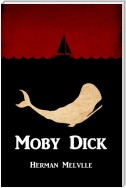Herman Melville

Herman Melville (August 1, 1819 – September 28, 1891) was an American novelist, short story writer, essayist, and poet. He is best known for his novel Moby-Dick. His first three books gained much contemporary attention (the first, Typee, became a bestseller), but after a fast-blooming literary success in the late 1840s, his popularity declined precipitously in the mid-1850s and never recovered during his lifetime.
When he died in 1891, he was almost completely forgotten. It was not until the "Melville Revival" in the early 20th century that his work won recognition, especially Moby-Dick, which was hailed as one of the literary masterpieces of both American and world literature. In 1919, the unfinished manuscript for his novella Billy Budd was discovered by his first biographer. He published a version in 1924, which was quickly acclaimed by notable British critics as another masterpiece of Melville's. He was the first writer to have his works collected and published by the Library of America.
Herman Melville was born in New York City on August 1, 1819, the third of eight children of Allan and Maria Gansevoort Melvill. Herman's younger brother, Thomas Melville, eventually became a governor of Sailors Snug Harbor. Part of a well-established and colorful Boston family, Melville's father, Allan, spent a good deal of time abroad as a commission merchant and an importer of French dry goods. After her husband Allan died, between 1832 and 1834, Maria added an "e" to the family surname — seemingly at the behest of her son Gansevoort.
The author's paternal grandfather, Major Thomas Melvill, was honored as a participant in the Boston Tea Party. Thomas Melvill, who refused to change the style of his clothing or manners to fit the times, was depicted in Oliver Wendell Holmes's poem "The Last Leaf." Herman Melville visited his grandfather in Boston, and Allan Melvill also turned to him in his frequent times of financial need.
The maternal side of Melville's family had been among Dutch settlers of the Hudson Valley in present-day New York state. His maternal grandfather was General Peter Gansevoort, a hero of the Siege of Fort Schuyler; in his gold-laced uniform, the general sat for a portrait painted by Gilbert Stuart, which is described in Melville's 1852 novel, Pierre. Melville drew upon his familial as well as his nautical background. Like the titular character in Pierre, Melville found satisfaction in his "double revolutionary descent."
In 1826 Melville contracted scarlet fever, permanently weakening his eyesight. Allan Melvill sent his sons to the New York Male School (Columbia Preparatory School). Overextended financially and emotionally unstable, the senior Melvill tried to recover from his setbacks by moving his family to Albany in 1830 and going into the fur business. The new venture was unsuccessful; the embargo of the War of 1812 had ruined businesses that traded with Great Britain and Canada. He was forced to declare bankruptcy. He died soon afterward, when Herman was 12, and left his family penniless.
Although Maria had well-off kin and expected some inheritance from her mother's estate, the process was slow. Her kin were apparently concerned with protecting their own interests rather than settling their mother's estate so that Maria's young family would be more secure.
Melville attended the Albany Academy from October 1830 to October 1831, and again from October 1836 to March 1837, where he studied the classics.
Melville's roving disposition and a desire to support himself led him to seek work as a surveyor on the Erie Canal. This effort failed, and his older brother helped him get a job as a "boy" (a green hand) on a New York ship bound for Liverpool. He made the voyage and returned on the same ship. Redburn: His First Voyage (1849) is partly based on his experiences of this journey.
For three years after Albany Academy (1837 to 1840), Melville mostly taught school. From 1838 to 1847, he resided at what is now known as the Herman Melville House in Lansingburgh, New York. In late 1840, he decided to sign up for more work at sea.
 čeština
čeština Deutsch
Deutsch français
français magyar
magyar polski
polski русский
русский English
English Azərbaycan
Azərbaycan беларуская
беларуская italiano
italiano ქართული
ქართული қазақ
қазақ português
português slovenčina
slovenčina español
español 中文
中文 Nederlands
Nederlands









